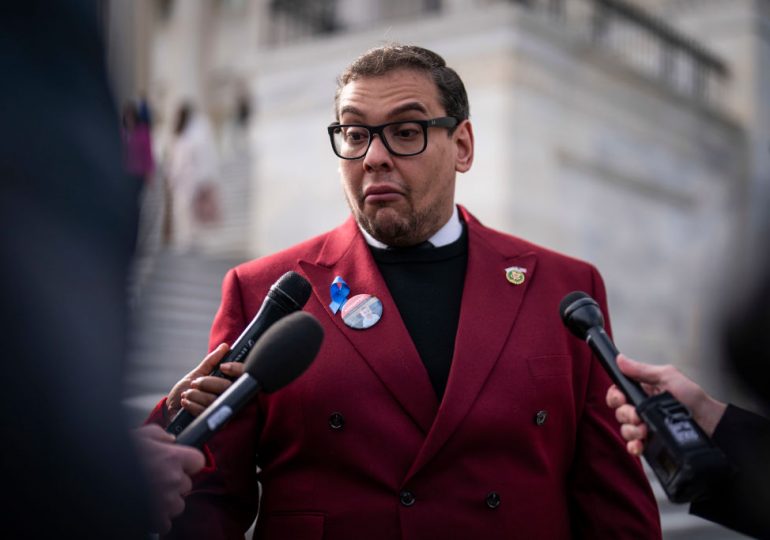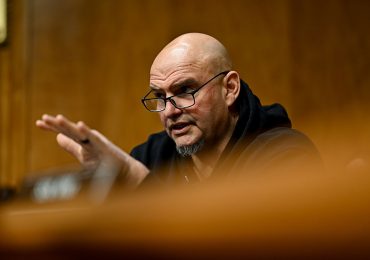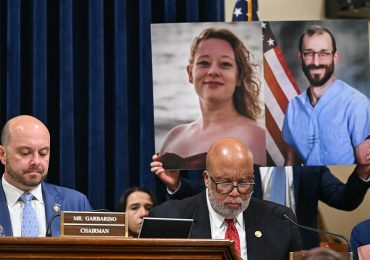This article is part of The D.C. Brief, TIME’s politics newsletter. Sign up here to get stories like this sent to your inbox.
There’s been this nagging sense in the last few years—let’s say eight of them—that the reality beyond the tips of our noses isn’t actually real. A persistent feeling that the scenes we are witnessing are completely disconnected from the narrative that’s been planted in our minds. It’s like our collective subconscious is channeling a Marx Brothers film and demanding of us: Well, who you gonna’ believe? Me or your own eyes? It truly has been a Golden Age of Gaslighting, one when nuh-uh passes for a sophisticated argument worthy of actual debate. Just ask former President Donald Trump, who gas-lit the world as an incredibly effective and very dangerous spin doctor. It may yet return him to the White House for a second term.
[time-brightcove not-tgx=”true”]
Nowhere has this occipital-lobe-versus-ocular-nerve conflict been more evident than a damning House Committee on Ethics report released Thursday on Rep. George Santos, the first-term Republican from Long Island, N.Y. Reading through all 56 pages of it is like looking through a mirror where everything on the other side of the glass is exactly as absurdist as possible. And, for much of the unanimous, bipartisan unofficial indictment, it’s Santos himself who is a Mad Hatter hijacking Alice’s tea parties.
The report is so damning that the long simmering effort to expel George Santos looks likely to boil over. Rep. Michael Guest, a Mississippi Republican and the chairman of the House Ethics Committee, filed the motion himself Friday morning. The vote could come soon after Thanksgiving.
More From TIME
“The evidence uncovered in the Ethics Committee’s Investigative Subcommittee investigation is more than sufficient to warrant punishment and the most appropriate punishment is expulsion,” Guest said in a statement. “So, separate from the Committee process and my role as Chairman, I have filed an expulsion resolution.”
Since winning his seat in one of the richest congressional districts in America—the real-life version of Jay Gatsby’s West Egg is in Santos’ district—Santos has been revealed to be a new patron saint of gaslighting. (So ripe are his misrepresentations that Friend of TIME Mark Chiusano is publishing a book about this figure rightly titled The Fabulist: The Lying, Hustling, Grifting, Stealing, and Very American Legend of George Santos immediately after the Thanksgiving holiday.)
The problems are so manifest that one scene from the taxpayer-funded government report encapsulates just how far down the rabbit hole Santos’ misrepresentations had become. On December 1, 2021, his campaign team cornered Santos and presented to him an internal 141-page report detailing all that they had discovered about inconsistencies, overblown claims in his biography, and holes in his story. It carried only a sliver of what was to become known about Santos.
All decent campaigns do these self-oppo efforts to see where they are vulnerable. The staffers told Santos he needed to clean up his sloppiness and start representing himself more honestly if he wanted to stand a chance at winning his second attempt at getting to Congress. Several urged him to drop out right then before things got out of hand. According to two witnesses who cooperated with the Ethics investigators, “Santos’ own campaign staff viewed him as a ‘fabulist,’ whose penchant for telling lies was so concerning that he was encouraged to seek treatment.”
Santos, who misrepresented his family’s ties to the Holocaust and 9/11 alike and sometimes went by the name George Devolder when trying to get rich acquaintances to open their wallets, did not bend. Three staffers departed. Those who remained were told not to believe the very specific questions raised in the internal report.
The Ethics panel makes this observation: “This was a key moment wherein Representative Santos could have put an end to all the lies he told, or at a minimum, taken steps to correct the record about his background and personal and campaign finances. Instead, he downplayed the significance of the report, telling new staff who were brought on to replace those who had left, and those who stayed, that the report was inaccurate.” Put simply: this was where things went off the rails.
And how.
Santos tried to throw his campaign treasurer under the bus; she got back up in October and pleaded guilty while facing up to five years in prison. Another former Santos insider this week pleaded guilty to impersonating then-House Speaker Kevin McCarthy’s top aide in calls meant to defraud donors and snag a 15% commission for himself. The aide, Sam Miele, faces up to two years in prison.
Santos, meanwhile, faces 23 criminal indictments. He has entered a plea of not guilty and posted a $500,000 bond to remain free while awaiting trial. An effort to boot him from the House failed earlier this month as his defenders urged fellow Republicans to wait until they could review the Ethics report.
The report reveals a litany of other misdeeds. His first campaign closed 2019 with $150, but reported having more than $4,000 in the bank. And rather than having $73,000 at the end of June 2020 as reported, the campaign had a little less than $14,000. And to keep the party going, Santos fabricated campaign-backed loans that he “repaid” to himself; during the 2020 campaign, that sum reached $31,000. Staffers at the time were under the impression that number could end up as high as $100,000.
It got worse when he ran a second time. On paper, he loaned his 2022 campaign more than $700,000. But he actually had nowhere close to that amount of cash available, let alone free for his campaign. And, in the personally embarrassing realm, there are signs that Santos used campaign donations for about $6,000 worth of purchases at the luxury store Ferragamo, and what was listed on campaign spreadsheets as Botox. Elsewhere, campaign dollars paid for subscriptions on OnlyFans, a website best known for porn.
If all of this seems rather parochial, it is. But even in the truth-shading profession of politics, you don’t mislead the FEC. You don’t lie to donors or cash checks from them even remotely predicated on identity theft. And you don’t falsify loans and use a campaign like a slush fund. That is a pretty clear malfeasance of a political if not criminal nature. (If true, of course.)
Most importantly: you don’t get to stay in Congress under these circumstances.
But Santos’ vote has, until now, remained useful to his party, which is why so many Republicans were privately seething for months about Santos’ drag on the GOP brand while simultaneously protecting him. With a zero-margin-of-error majority in the House, the GOP has needed him in the seat. And if elections were held today in the district as it’s drawn right now, Democrats would have a baked-in two-point advantage.
Santos is going about his business as though none of this is tangible. In an unhinged series of tweets on X, formerly known as Twitter, he teased a tell-all press conference on Nov. 30. After the report’s release, Santos acknowledged there was really no viable path to a second term and would abandon his re-election bid. But Santos is not exactly a figure who is known for poise or rationality.
Which is why Washington can’t seem to shake this tension between what they know to be true—that Santos is a second-rate huckster who needs shown the door—and his utility for Republican exploitation on tough votes. None other than former Czech President Vaclav Havel—whose bust graces a vestibule at the Capitol where Santos still serves—had this encouragement for those with aggressive imaginations: “We must not be afraid of dreaming the seemingly impossible if we want the seemingly impossible to become a reality.” That might have been a fitting campaign slogan for one George Santos. Certainly one that is provably true in a campaign where even the candidate’s very name was in question.
Make sense of what matters in Washington. Sign up for the D.C. Brief newsletter.
Leave a comment
















